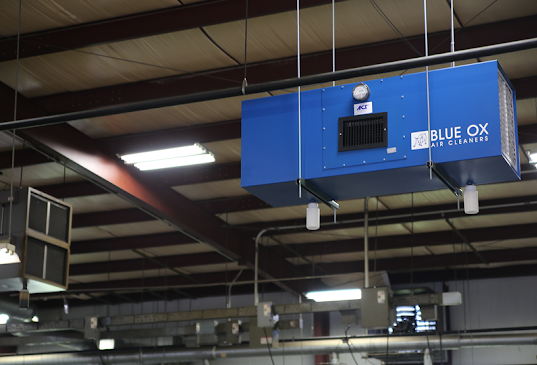Understanding HEPA Filters: A Comprehensive Overview
HEPA - high-efficiency particulate air filtration, is used to capture harmful micro-organisms and airborne contaminants that risk sterility in hospitals, pharmaceutical manufacturers, research labs, and other cleanroom buildings. Controlling contaminated air helps prevent compromised patient and employee health by eliminating the risk of respiratory issues, worsening medical conditions, and diseases spread through germs, bacteria, and infectious viruses.
HEPA air filters, also known as absolute filters, remove 99.97% of particulate down to 0.3 microns — a benchmark established in the 2020 ASHRAE Handbook (mediated through the latest ASHRAE Standard 52.2 testing) noting that HEPA filters outperform MERV 16 in capturing fine particles. For context, the naked eye cannot see anything smaller than 40–50 microns. Due to its effectiveness, HEPA air filtration has become the standard for applications that require the ultimate in clean air. Using HEPA filters in your air filtration system guarantees that fine, sub-micron particles — smoke, bacteria, pollen, spores, etc. — are trapped.
Clinics, labor and delivery centers, treatment facilities, and indoor grow rooms cover only a small scope of applications that rely on HEPA air filtration to protect medical patients and staff. Even so, there are still a lot of questions about HEPA air filtration and if it's the best solution for any cleanroom environment — here's everything you need to know!
Is a HEPA air filtration system right for my application?
HEPA air filtration is an ideal choice for environments that demand the highest air quality, such as cleanrooms, welding machine processes, and other applications requiring surgical-grade air. Whether it’s healthcare facilities, pharmaceutical manufacturing, laboratories, or data centers, HEPA filtration plays a critical role in maintaining pristine air quality standards. Explore the benefits of HEPA filtration to determine if it’s the right solution for your facility.
Need more information? Contact our experts for guidance on upgrading your air filters or for a free quote on HEPA air filtration systems.
How often should HEPA filters be changed?
In cleanroom environments, it’s recommended to check HEPA filters every six months and replace them at least once a year. Regular maintenance ensures optimal performance and air quality.
Can HEPA filters be washed and/or reused?
While some HEPA filters claim to be washable and reusable, there are some important considerations:
• There is no definitive proof that washable HEPA filters retain their effectiveness after cleaning.
• Washing HEPA filters may cause them to deteriorate.
• Cleaning HEPA filters near sterile or cleanroom environments poses a significant contamination risk.
It's best to follow the manufacturer's guidelines and replace filters as needed for maximum efficiency.
Should HEPA air filtration systems run 24/7?
For optimal performance, we recommend running HEPA air filtration systems continuously. Keeping the system operational 24/7 ensures consistent air quality and supports overall effectiveness.
Do HEPA air filtration systems remove odors?
While HEPA air filtration systems do help with odor removal, they aren’t as effective as carbon filters. HEPA focuses on removing airborne particles, while carbon filters are specifically designed to eliminate odors and volatile organic compounds (VOCs). For comprehensive odor control, combining HEPA with carbon filtration is often the most effective solution.
What's the difference between HEPA & MERV?
HEPA filters typically have a MERV rating between 17 and 20, making them ideal for environments like hospitals and cleanrooms, where even the smallest particles must be filtered out. MERV ratings range from 1-16, indicating the filter’s ability to capture particles. The higher the MERV rating, the smaller the particle size it can filter.
• Low MERV (1-4): Captures larger particles.
• Medium MERV (5-13): Suitable for general commercial or residential use.
• High-Efficiency MERV (13-16): Captures particles as small as 0.3 microns with at least 75% efficiency.
Blue Ox HEPA air filtration systems draw bacteria, dust, mold spores, and other dangerous air contaminants through a 99.97% HEPA after-filter to remove particulate as small as 0.3 microns to keep filtered air circulating throughout cleanroom and sterile environments.
Our air cleaners are available in a range of HEPA options to accommodate almost any cleanroom environment. Get started on your free quote today!
You may also like:
• Do You Need HEPA Air Filtration?
• The Difference Between Air Filtration & Ventilation
• What is Indoor Air Quality & How Does It Apply to You?


Copyright © 2026 | Blue Ox Air Cleaners. A division of Air Cleaning Specialists, Inc.
